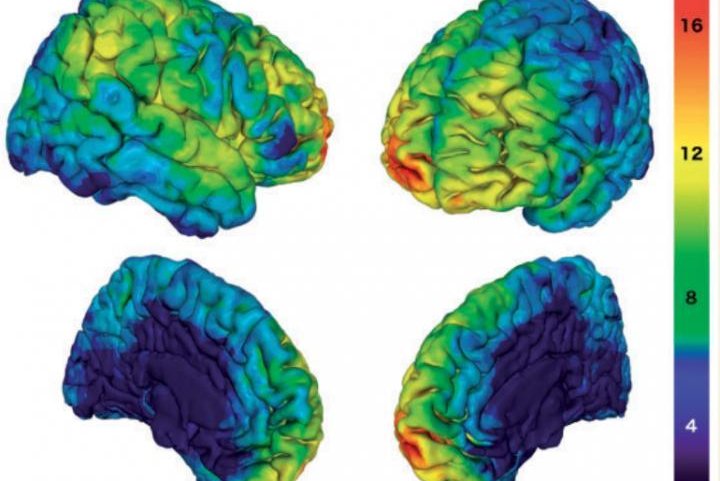The study of lesions on the brains 94 Vietnam War veterans helped scientists identify neural networks related to altruistic behavior. Photo by Moll et al./Brain
March 26 (UPI) -- Scientists have found evidence of the neural origins of altruism in the brains of Vietnam War veterans.
For the past three decades, scientists have been using advanced imaging to study the brains of war veterans. In a new study, scientists used research into penetrating traumatic brain injuries among Vietnam veterans to map the neural networks responsible for altruistic behavior.
The study, published this week in the journal Brain, featured 94 war veterans with penetrating TBI and 28 control participants who are Vietnam vets without a history of brain injury.
All the study participants completed an altruistic decision task, designed to gauge each person's sense of justice and morality. The test asks participants to either donate or punish 30 different charitable organizations, each dedicated to specific societal issues, including abortion and gun control.
Each time participants decided to reward or punish a group, a dollar was taken from their budget. Participants could also choose to take no action, saving them a dollar to be used later.
"This test is different than others because it allows us to go deep in their moral intent, since they donate or punish to what they believe is right or wrong," Ricardo de Oliveira-Souza, neurologist from D'Or Institute for Research and Education, said in a news release.
The results of the study showed participants with penetrating TBI-caused bilateral lesions on the dorsomedial prefrontal cortex indicated participants may be more likely to punish organizations they disagreed with. Participants with brain lesions on their left temporo-insular and right perisylvian cortices were less likely to punish the charitable organizations.
Those with lesions on the dorsomedial parietal cortex were most likely to donate to their preferred groups, while veterans with lesions on the posterior parts of the right hemisphere, including superior temporal sulcus and middle temporal gyrus, were less likely to donate.
"Our findings reveal that we have two distinct brain circuits that come into action under a moral situation: one of them punishes, the other one donates," Oliveira-Souza.
The research confirms the findings of previous studies which showed a complex combination of neural networks are involved in decision making related to issues of morality and justice.
"We hope that learning more about the brain mechanisms of altruistic behavior and its related social behaviors we can promote the positive social behaviors that families desire, particularly in patients under rehabilitation for different forms of neurodegenerative disorders or brain injury," said neuroscientist Jordan Grafman.
In future studies, the researchers hope to investigate whether differences in age and gender impact the function of the brain circuits related to altruism.















